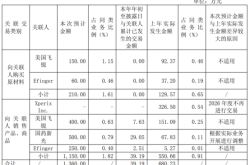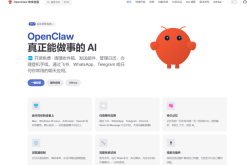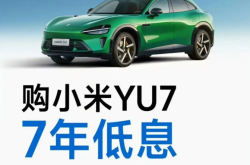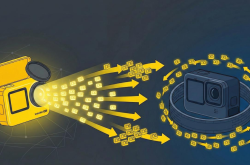Chasing Technology's Car Manufacturing: The Next Xiaomi or Next Geely?
![]() 11/04 2024
11/04 2024
![]() 529
529
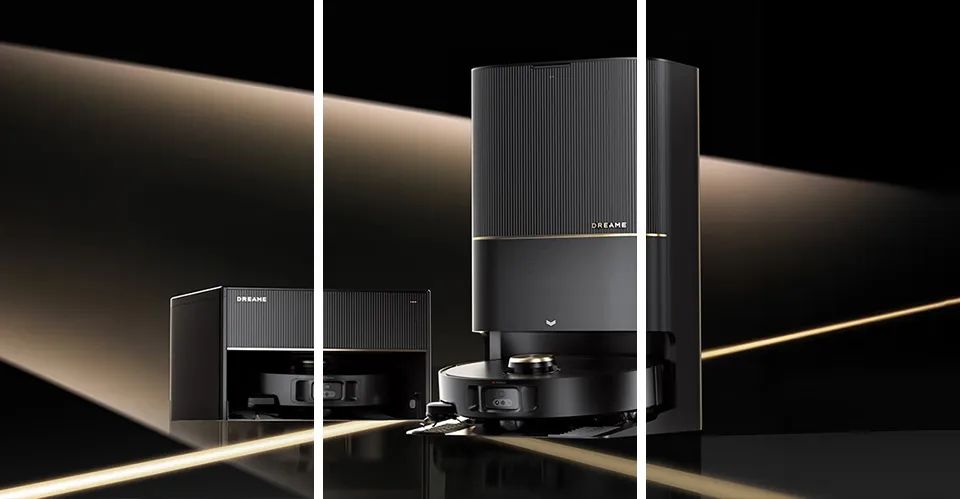
Companies like Chasing Technology entering the "car manufacturing" field are not uncommon, with Xiaomi and Roborock being predecessors. However, manufacturing cars is significantly more challenging than producing robot vacuum cleaners and hair dryers. Will Chasing Technology become the next Xiaomi or the next Geely?
Written by Li Yue
Produced by Jieche TechnologyJust when everyone thought Xiaomi (01810.HK) would be the last tech company to venture into car manufacturing, another "outsider" couldn't contain their excitement. Recently, insiders revealed that Chasing Technology's car manufacturing project has assembled a professional team of about 200 people. The first new car is an extended-range model currently in the demo stage, with plans to export to the European market in the future.
Public records show that Chasing Technology was founded in 2017 and was initially part of Xiaomi's ecosystem. It rose to prominence in the smart cleaning industry, leveraging Xiaomi's brand endorsement and channel advantages. After years of development, Chasing Technology gradually established its own brand and achieved remarkable results in smart cleaning products such as robot vacuum cleaners, smart floor washers, cordless vacuum cleaners, and high-speed hair dryers.
Previously, companies like Chasing Technology entering the "car manufacturing" field were rare, with Xiaomi and Roborock (688169.SH) being predecessors. However, manufacturing cars is significantly more challenging than producing robot vacuum cleaners and hair dryers. Will Chasing Technology become the next Xiaomi or the next Geely?
1
Car Manufacturing Foundation Closer to Roborock
To manufacture cars, one must at least have some foundation; otherwise, it would be "PPT" car making. In terms of company type, Chasing Technology is more like Roborock.
Both companies started as part of Xiaomi's ecosystem. In July 2014, Roborock was founded, and in September 2014, it received investment from Xiaomi, becoming part of Xiaomi's ecosystem. In September 2016, Roborock was the first to launch a Mijia robot vacuum cleaner, achieving top sales on both platforms (JD.com and Tmall).

In 2017, Chasing Technology was founded and joined Xiaomi's ecosystem at the end of the same year, responsible for the smart cleaning category. In 2018, the first product, the Chasing Wireless Vacuum Cleaner V9, was launched through Xiaomi crowdfunding, selling out in 6 days with 18,888 units sold and sales exceeding 15 million yuan.
However, both companies subsequently chose to transition from B2B to B2C, establishing their own brands and securing a place in the smart cleaning industry. Taking robot vacuum cleaners as an example, AVC Revo data shows that from January to August 2024, the top 5 domestic robot vacuum cleaner sales market share brands were Ecovacs (22.22%), Roborock (20.29%), Xiaomi (15.80%), NARWAL (14.84%), and Chasing (11.23%).
From a core technology perspective, Roborock has accumulated rich technology in the smart home field, such as laser ranging modules (LDS) and simultaneous localization and mapping (SLAM) technology. These technologies can aid in intelligent driving.
Chasing Technology's core technologies primarily include high-speed digital motors and intelligent algorithms. Through intelligent algorithms, Chasing's products can achieve efficient navigation, obstacle avoidance, and cleaning functions. For example, Chasing's robot vacuum cleaner is equipped with a self-lifting panoramic lidar, enabling 360° obstacle-free rapid mapping and intelligent environmental judgment, flexibly adjusting the lidar height to meet the needs of different scenarios.
It's not difficult to find that Chasing Technology and Roborock are quite similar in terms of their car manufacturing foundations. However, Roborock, which ventured into car manufacturing first, is currently in a difficult situation. According to the China Passenger Car Association, the only model under Geely Auto, the Geely 01 PHEV, has an average monthly sales volume of less than 400 units in the first eight months of this year.
2
Xiaomi's Car Success is Hard to Replicate
The target company that Chasing Technology can learn from is, first and foremost, Xiaomi. Xiaomi's car has achieved initial success, but its success is hard to replicate.
Xiaomi's car success has its uniqueness. Firstly, it has strong brand recognition and a large fan base. After years of development in the smartphone and consumer electronics fields, Xiaomi has established a widespread and deeply ingrained brand image. Consumers have a high degree of recognition for the Xiaomi brand, and this accumulated brand recognition is long-term and difficult for other new entrants into the automotive industry to replicate in a short period. Xiaomi also has a large group of "Mi Fans," who have high loyalty and enthusiasm for the Xiaomi brand. When Xiaomi's car was launched, the attention and support of Mi Fans brought initial market heat and a potential customer base. This fan economy effect is based on Xiaomi's years of interaction and accumulation with fans, and it is difficult for other companies to quickly establish a fan base of such scale and loyalty.
Secondly, it has a full-stack self-developed technology system: Xiaomi has invested heavily in automotive technology research and development, building a full-stack self-developed technology system, including core areas such as intelligent driving and intelligent cockpits. This full-stack self-developed capability requires the company to have a strong technical team, sufficient R&D funds, and long-term technical accumulation. It is not easy for other companies to establish a similar technology system in a short period, facing not only technical barriers and talent competition but also high R&D costs and risks.
Thirdly, it has ecosystem integration and synergy capabilities. Xiaomi has a rich portfolio of smart hardware products, deeply integrating cars with Xiaomi's smartphones, smart homes, etc., to create a human-car-home full-ecosystem travel scenario. Xiaomi has also accumulated rich supply chain management experience in the consumer electronics field, establishing long-term and stable cooperative relationships with many suppliers. After entering the automotive industry, it can apply these experiences and advantages to the management of the automotive supply chain, achieving efficient supply chain synergy.
Of course, there is also the influence of Lei Jun, the founder. As the founder of Xiaomi, Lei Jun has a high influence and appeal in the technology industry. Lei Jun's entrepreneurial spirit and relentless pursuit of products have also established a good brand image for Xiaomi's cars.
In contrast, Chasing Technology and Roborock can only be considered "highly compressed" versions of Xiaomi at best. To give a simple example, Yu Hao, CEO of Chasing Technology, and Chang Jing, CEO of Roborock, are also successful entrepreneurs, but in terms of influence, they cannot match Lei Jun.
3
Asset-Light Car Manufacturing Has Almost No Chance of Success
According to current news, Chasing Technology's car manufacturing is not a spur-of-the-moment decision; the car manufacturing plan was first initiated in 2021. Insiders revealed that Chasing Technology's car manufacturing will adopt a light investment and capital approach, aiming to provide services such as product definition, technology, and channel layout for automakers with manufacturing capabilities.

Simply put, Chasing Technology is still learning from early NIO, previous SF Motors, and current Geely Auto, adopting an OEM production model to try to achieve its goals through asset-light means.
However, a harsh reality is that this path is almost unfeasible. Even though Li Bin was once very insistent on not obtaining production qualifications, NIO is now a full-fledged automotive company with both qualifications and factories. The same is true for Xiaomi; even though it initially did not obtain qualifications, it resolutely built a factory first. And Huawei, which resolutely refuses to manufacture cars, still "returned" the trademarks of the four sectors to the four cooperating automakers.
In the automotive circle now, there may only be Geely Auto, the so-called "OEM production" automotive brand left. However, in reality, the trademarks and production qualifications of Geely Auto belong to Beijing Automotive Manufacturing Co., Ltd. Tianyancha shows that the current graphic and word trademarks of Geely Auto were applied for registration by Beijing Automotive Manufacturing Co., Ltd. in 2022, with a registration type of transportation tools and approved in 2023.
In fact, this is not difficult to understand. National regulations require that brand owners and manufacturers must be the same, and brands must be owned by manufacturers. Therefore, strictly speaking, Shanghai Luoke Intelligent Technology Co., Ltd., helmed by Chang Jing, cannot actually place the Geely Auto brand and related products under its own banner. To a certain extent, this would confuse consumers: Whose is Geely Auto really? Who is responsible when problems arise?
In summary, Chasing Technology may only have one path left, which is to reserve sufficient funds as provisions, invest as needed, and resolve upfront issues such as car manufacturing qualifications and factories. At the same time, it should steadfastly develop products.
However, this requires continuous and substantial investments in funds, manpower, resources, and other aspects, with at least tens of billions of real money spent. For Chasing Technology, taking this step requires great courage. After all, its competitor Dyson in the high-speed hair dryer field has announced its abandonment of car manufacturing after spending 22 billion yuan in tuition fees. With past experiences as a warning, will Chasing Technology still dare to take a risky leap?

